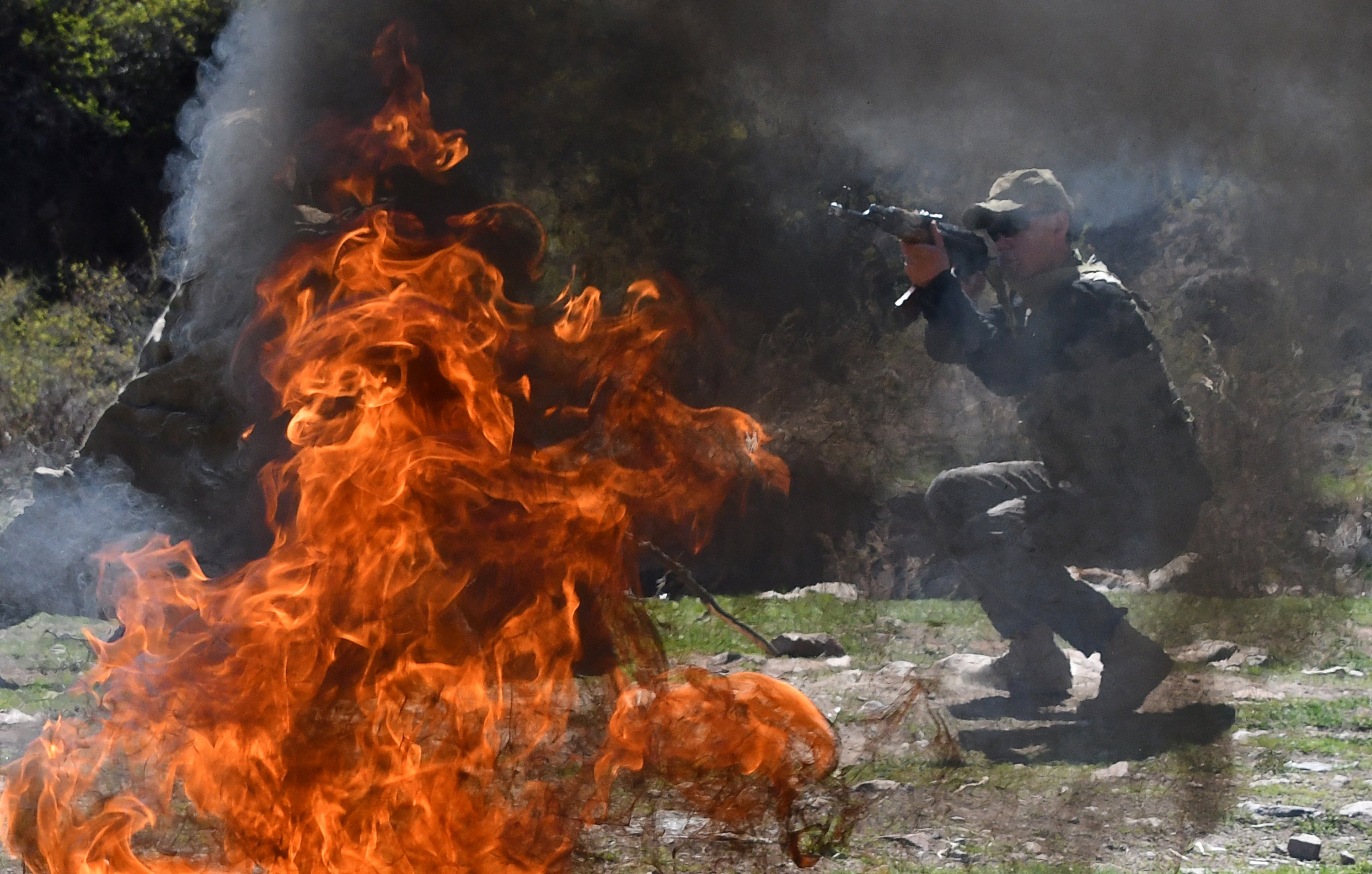Thousands flee as water dispute triggers worst fighting in decades on Kyrgyzstan-Tajikistan border
Firing incidents continued despite announcement of fresh ceasefire

Your support helps us to tell the story
From reproductive rights to climate change to Big Tech, The Independent is on the ground when the story is developing. Whether it's investigating the financials of Elon Musk's pro-Trump PAC or producing our latest documentary, 'The A Word', which shines a light on the American women fighting for reproductive rights, we know how important it is to parse out the facts from the messaging.
At such a critical moment in US history, we need reporters on the ground. Your donation allows us to keep sending journalists to speak to both sides of the story.
The Independent is trusted by Americans across the entire political spectrum. And unlike many other quality news outlets, we choose not to lock Americans out of our reporting and analysis with paywalls. We believe quality journalism should be available to everyone, paid for by those who can afford it.
Your support makes all the difference.Kyrgyzstan and Tajikistan traded accusations over the worst clashes between the two ex-Soviet central Asian neighbours in decades that left at least 20 people dead, about 150 injured and 10,000 displaced over a water dispute.
The clashes started on Wednesday with gunfire between the Kyrgyz-Tajik troops on the border for most of the day.
The dispute occurred around a water supply facility near the village of Kok-Tash, in Batken region of Kyrgyzstan after a CCTV camera was installed on the power line poles by the Tajikistan troops. The Kyrgyz side tried to hack it down, prompting clashes.
The spokesperson of Kyrgyz Ministry of Health said: "As of 7:50 a.m. [01:50 GMT], the total number of those injured as a result of the incident on the Kyrgyz-Tajik border stands at 134, with 13 of them having died.”
While the official count of causalities from Tajik side is unclear, Ria- Novosti news agency said three Tajik citizens died and 31 were injured, including the mayor of Isfara city who received a gunshot wound.
The two countries declared a ceasefire late on Thursday and agreed to pull back military units after heavy clashes. But heavy firing broke out in the stand-off zone on Friday afternoon, reported Interfax news agency.
The videos showed automatic guns blazing at the standoff zone and building on fire.
"It is still premature to say that the situation has been completely leveled off. The consequences of the military clash are very difficult. I note that the Tajiks have removed bulldozers from the village of Arka in the Leilek region," an official of the Kyrgyz government said, reported Ria- Novosti.
The shooting occurred between both “military units and civilians", a police representative from Batken.
More than 10,000 people were evacuated from several villages, under direct threat from clashes.
Tajikistan and Kyrgyzstan share about 980 km long border with a large part of it unmarked, leading to disputes over water, land and pastures. The loose demarcation of the border has led to a number of clashes since the two became independent in 1991 following the collapse of the Soviet Union.
Kyrgyz National Security Committee accused Tajik side of provocation on 29 April by using squad weapons to fire shots on their side of the border. It said that she shelled several areas of the Batken region using Mi-24 helicopter.
However, Tajikistan said the other side opened fire first on the border guards and accused Kyrgyzstan of attempting to take over the Golovnaya water station area, which Tajikistan claims its own territory. It said Kyrgyz fired mortars and rocket-propelled grenades.
An expert at the Russian Academy of Sciences’ Institute of World Economy and International Relation Stas Pritchin told Tass news agency that Tajikistan and Kyrgyzstan have had a long history of border disputes and both claim portions of each other territory.
The dispute remains unresolved as locals and criminal groups remain at odds even as authorities lead talks to resolve border conflicts.
Neighboring Uzbekistan offered on Thursday to mediate the conflict.
A strategic ally of the two countries, Russia, welcomed the ceasefire and said they are closely monitoring the conflict.
Join our commenting forum
Join thought-provoking conversations, follow other Independent readers and see their replies
Comments